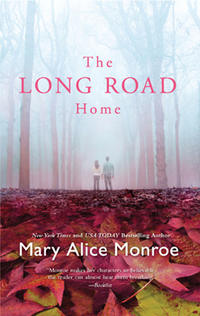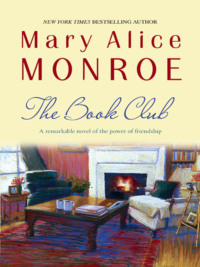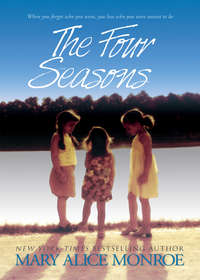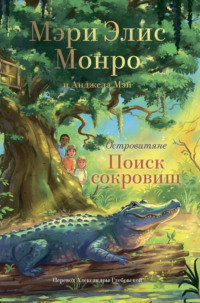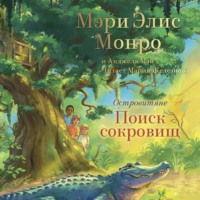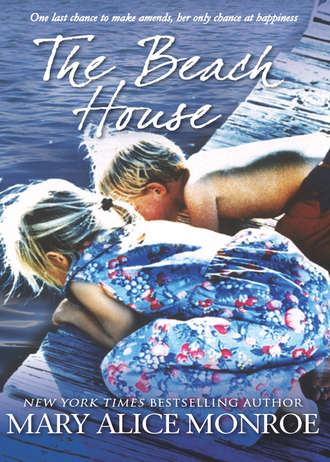
Полная версия
The Beach House
“It was before my time, too,” Cara muttered, trying not to laugh.
“You should be pleased and proud to be named after the noble loggerheads,” her mother said.
“I’m only pleased that you didn’t give me the full Latin name Caretta Caretta.”
“I wanted to but your father wouldn’t let me. Don’t laugh. I’m serious!”
“Then your middle name would have been Caretta, too?” Toy’s laughter pealed like bells and Cara shook her head, resigned to the fact that, from that moment on, Toy would call her Caretta Caretta just to tease.
Cara beat the tempo with her fingers on the steering wheel, thinking how easy the mood was between them now where just a few days ago it had been so tense. She and Toy had kept a polite but deliberate distance from one another, rather like two pugilists sizing each other up before the bell. As each day passed, however, Cara couldn’t help but notice how much work the young girl did around the house and her respect grew.
She turned her head to listen in on the rapid-fire conversation between Toy and her mother, who had turned around to face the back seat. Something about a marinade using sesame oil and garlic. The affection between them was obvious. Whenever those two were together they chatted away like magpies. Cara watched from behind her dark sunglasses with a twinge of jealousy. She never could be like that with her mother. Though they were trying hard, there was this deep current running between them that was too strong for idle talk and laughter.
The Ben Sawyer Bridge took its sweet time to close again but eventually they were off, over the river and across the wetlands to Mount Pleasant.
“We’ve got to stop for shrimp on the way,” she remembered, her eyes on the lookout for the turn off Coleman Boulevard. “Do you have any idea where this shrimp joint is?”
Her mother laughed lightly beside her. “It’s off Shem Creek. Just turn left at the next corner. I can’t believe you don’t remember all the times your father brought you there.”
“Selective memory,” she quipped, then turned off the main road. Moments later, Cara was lost in a winding maze of narrow roads in an old neighborhood with enormous oaks dripping with moss and charming smaller houses. She stayed to the right as Palmer had instructed, passed a row of enormous new houses on the creek, then went straight to a dead end with an old wood sign that read: Clud’s Shrimp Bait and Accoutrement.
It was a long name for nothing more than a small wood shack beside a few shrimp boats docked in the rear. Several burly men hauled shrimp from a large trawler, shouting to each other and laughing, seemingly oblivious to the three women in high heels and sun dresses as they stood at a plywood counter.
Cara walked around to the rear to drum up some service. It was a shining afternoon and everywhere she looked it was like a post card depicting an old Charleston industry. She could smell the pungent blend of shrimp, salt and sea in the air, and hear the water lapping, the boat thumping against the dock and the raucous call of gulls. She walked closer for a better view of the long, centipedelike riggings. Perched on the side of the trawler, like a model for a Wyeth illustration, stood a broad-backed shrimper in stained jeans, a red T-shirt and heavy, paint-splattered, sun-bleached boots. There was stubble on his tanned, weathered face and his brown hair fell along his brow as he bent over the nets. She was about to turn away when he swung his head around toward her.
Damn, it was the man from the bar. She knew he caught sight of her, too, because after a second his eyes crinkled in recognition and he smiled.
It was a rogue’s smile, full of tease, and she turned away sharply, the mocking laugh of the seagulls in her ears. “Of all the luck,” she muttered as she turned on her heel and headed back to the shack. Her mother and Toy were already collecting the shrimp.
“All set here?” she said, anxious to leave, pulling out her wallet.
“Your credit card is no good here,” her mother chided.
Cara pulled out some bills and laid them on the table, but her mother, with agonizing deliberation, counted out the coins from her purse to give the exact change. Cara cast a nervous glance out back. From the corner of her eye she saw the man on the boat heave himself over the side and deliberately make his way toward the ramp.
She reached into her purse to pull out another dollar. “Keep the change.” Then, linking arms with her mother, she led a hasty retreat with Toy bringing up the rear.
“I don’t see what the big hurry was all about,” her mother exclaimed, doing up her seat belt as Cara spun gravel and veered out of the parking lot.
“We don’t want to keep Palmer waiting.”
“Waiting? For heaven’s sake! It just isn’t polite to arrive right on the dot. Now you slow down a bit, Cara, and show your manners!”
Palmer Rutledge stood at the helm of his Boston Whaler, one hand firmly on the wheel of his powerboat and another wrapped around a beer as he grandly gestured, pointing out the new, expensive houses as they made their way up and down the Intracoastal Waterway. Lovie and Toy sat together on plush cushions under a canopy. Cara chose to sit at the rear in the sun. It was a lovely, sunny, splashy trip and Palmer was pulling out all the stops. Cara leaned far back on the padded deck chair, hung on to her cap and acknowledged his comments with a smiling nod.
More houses and docks bordered the winding waterway than she remembered and many more boats were cruising. When she was young, she and her friends could jump from the dock and swim across the waterway to a small hammock of land where they could stand for a bit to catch their breath before they swam back. To try that today would be as dangerous as crawling on all fours across a two-lane highway. The wakes of boats rocked them as they sped by, but it was all in good sport with lots of waves and smiles.
As beautiful as the houses and marshes were, she far more enjoyed just sitting back and enjoying the vision of her brother in his own element. Palmer was a Lowcountry boy through and through, in love with every square inch of land and every drop of water that made up this special place on God’s earth.
He’d been a restless boy. Mama had called him Palmer the Panther because of the way he prowled with a hungry look in his eyes. But he was older now and Cara thought the paunch over the rim of his Tommy Bahama trunks and the extra roundness to his cheeks attested to a certain degree of satisfaction with his life—and his penchant for biscuits and barbeque.
“Auntie Caretta, do you want some soda?”
Cara turned her head to see a prim Linnea standing wide legged before her, trying desperately to maintain her balance while serving a cold Coke in a Koozie in a ladylike fashion.
“Why, thank you, darling,” she replied, taking the soda. “You are the sweetest, most adorable hostess I’ve ever seen. And you’re doing a wonderful job. Palmer, do you see how wonderful your daughter is? Not spilling a drop? She’s like a ballerina with all this bouncing around.”
“More like a drunken sailor,” he called back.
“Daddy!”
“Only kidding, sweetheart. You know I think you’re the best.”
“My mama told me I was the hostess,” she told Cara earnestly. “Since she’s back at the house fixing dinner. Do you want anything else?”
“Just a kiss.”
The little girl obliged, leaning far over to give a bumpy kiss on her cheek, then she was back on duty. “Grandmama Lovie, do you want something cold?”
Linnea moved across the boat, holding tight to seat backs, knees, anything she could grab to keep from tumbling over as the boat sped along. The child was trying so very hard to do her job right.
Cooper was only interested in driving the boat. His small but stout frame stood rigidly near his father, his round dark eyes trained on the gears and every move Palmer made at the wheel. Sadly, Palmer was too busy shouting out his comments to the adults over the roar of the engine to pay the boy mind.
“Daddy, can I hold the wheel? Please?” he asked for the tenth time.
“Cooper, go on over to your grandmother for a spell,” Palmer shouted, shooing the boy away.
Cooper’s face fell to a scowl but he obliged, moving stiff-leggedly to sit in the shade of the awning beside Toy and Lovie. Cara watched the boy as he squirmed in his seat for a few minutes, then chuckled to herself when she saw him sneak his way back to the wheel again to stare at his father, his brown eyes pleading. It was both funny and sad for Cara to watch, remembering how Palmer used to be the same way with their father, and how Daddy, too, had shooed his son away.
Palmer, Palmer, she thought to herself. Careful what you’re doing.
The red sun was sinking into the horizon as they headed back to Charleston and the waters took on a marvelous, glassy pink hue. The powerful engine churned as they cut through the choppy waters of the harbor.
“Look, Aunt Cara. There’s Fort Sumter!” Linnea exclaimed, pointing to a small island in the middle of the entrance to Charleston Harbor from the Atlantic.
Cara smiled and nodded, having seen the historical spot a million times in the past.
Linnea moved closer in an attempt to strike up a conversation with her. “Aunt Cara, did you know the first shot of the War Between the States was fired at that fort?”
Cara opened her mouth but was too surprised to find the words to reply.
Palmer let loose a loud belly laugh and shouted, “She thinks you’re a Yankee! That’ll teach you to live up north so long.”
Lovie only smiled and nodded her head as if to say, I told you so.
“Honey pie,” Palmer said between laughs, “if your Aunt Cara’s a Yankee, then so am I.”
Linnea looked at her father with confusion. “But Daddy, she lives in Chicago.”
“All too true, darling. But she was born and raised right here in Charleston. Just like you.”
Linnea turned to look at Cara again, the wonder in her limpid blue eyes mixed with speculation as to whether Cara was to be scorned or pitied for having lost her mind and leaving the Lowcountry.
Cara knew that she’d become something of an oddity in the family, the exile who lived somewhere cold and unfamiliar to warm-blooded southerners. Someone who only came to visit when duty called, wearing clothes that were different, and preferred to stay in a hotel than with the family. She felt the distance most acutely with these children who studied her now with measured glances.
“Don’t you worry, honey,” Cara assured her niece with a wry smile. “It’s not your fault for not knowing. I left long before the Civil War.” She exaggerated the phrase that marked her as a Yankee, just to tweak her brother.
“You just keep dating yourself, sister mine,” he drawled, not missing a beat. And though she couldn’t see his eyes behind his black sunglasses, she knew they were sparkling. “But I’ll always be your older brother, our mother’s darling and superior in every way.”
Cara took the ribbing in her stride, knowing full well that this was only the appetizer portion of what was yet to come. It was his way to make light of painful subjects—and it worked. Linnea warmed up to her once the family ties were straightened out. She took a seat next to Cara as much out of curiosity as affection. Cara felt the line of her slim body bump against hers as they headed straight for the tip of the Charleston peninsula and felt a surge of affection for her young niece. It was a new experience for her and she smiled warmly, gratified when Linnea smiled back.
Everyone in the boat quieted as they drew near to the city. Cara lifted her chin and felt a stirring of pride at seeing the cluster of historical homes along the Battery that gave the city its distinction. They loomed over the high stone embankment as pretty and desirable as a line of well-bred beauties leaning over an iron balustrade. No matter how many times one saw the view, stranger and local alike never got over the thrill of viewing the city in the same manner that travelers approaching by sea had seen the city for hundreds of years. Charleston showed herself off best from the water, she thought, still smiling.
The big motor slowed and the propellers churned the waters as the boat eased into the Charleston marina. The smell of gasoline mingled with saltwater. Cara’s stomach tightened as the boat rocked.
“We’re almost home,” Linnea said. Then, pointing toward the shore, she added with a child’s boast, “Our house is right back in there.”
Cara lifted her chin to look beyond the tall masts to Bay Street and the familiar row of stately homes. Home? She drew in a long breath while her thoughts traveled the few blocks farther back in that cluster of brick, wood and iron to the house that she had grown up in. She looked to her mother and was surprised to see Lovie’s gaze upon her, a small, knowing half smile upon her lips.
Under the cloak of night the loggerhead comes ashore. She slowly drags her body in a tanklike crawl to a dry site high on the beach. Only the female loggerhead comes ashore to nest. Once the male hatchling swims into the sea, he almost never will set flipper on beach again.
CHAPTER SIX
Her mother’s house was a handsome Greek Revival located on one of the narrow, palmetto and oak shaded side streets “South of Broad,” that golden perimeter of blocks where affluence still reigned in splendor. Charming was the word most people used to describe the distinctive architecture of the historical, pastel houses, churches and gardens with their elaborate grillwork. Olivia and Stratton Rutledge had purchased the house in the early 1960s soon after Cara’s birth for a fraction of its current worth and it was the only house Cara had ever lived in growing up. Her mother had fallen in love at first sight with the grace and charm of the rather dilapidated house. Owning it had been an adventure. Lovie had found countless artifacts in the yard as they dug the earth for the pool, and over the years she’d painstakingly brought the mansion, with its gracious three-story piazza, back to its former glory. It was Lovie’s glory that every fall for years the house was included in the Preservation Society’s annual house-and-garden tour.
Sitting at the curb looking at her childhood home surrounded by majestic oaks, Cara knew that a beautiful house was not always a happy one. She got out of the car, stepping into the mist drifting in from the harbor. She closed the door and quietly walked along the crooked sidewalk toward the front gate. Even as she moved forward she felt as she always did the urge to spin on her heel and run. Inside this grand house there were memories she preferred not to revisit. Nothing morbid or incestuous, nothing that would make scandalous headlines. Theirs was a more quiet and insidious kind of trauma. Palmer and she had suffered a long series of insults and sad incidents that curled thick and musty around her like the fog on this gunmetal-gray night.
Her chest constricted and she took a deep breath as she stood at the front door beside her mother and Toy, waiting for someone to answer their bell. Inside the house she heard the sound of children’s high-pitched laughter and a pounding of feet on the stairs. A moment later, Julia swung open the wide front door to welcome them each in a warm embrace.
“You’re here! We thought y’all got lost. How long does it take to get here from the dock?”
“I just wanted to drive around the old neighborhood,” Cara explained.
“Well, come on in and welcome. The children are like jumping beans.” Julia was tiny and slender in her lovely floral summer dress that matched exactly her pale-blue eyes. Cara hadn’t seen her in years and thought her sister-in-law had traded her youthful perkiness for a mature elegance that flattered her. Yet behind Julia’s bright smile she spotted a new hardness, especially around the eyes where fine lines accentuated the strain. She’d cut her long blond hair to a sporty, cropped look that exposed the large topaz-and-diamond earrings at her ears. Her makeup was expertly applied. Cara knew that if she ran into her sister-in-law at the grocery store she would look as well turned out.
It seemed to her that Julia was a bit presumptuous in welcoming Lovie as a guest in her own home, but she reasoned that it was only natural for a Southern woman to do anything she could to make everyone feel welcome. In contrast, Toy was being mulish, shuffling her feet and barely muttering a halfhearted hello. Cara knew her well enough now to know that this was a mask for her insecurities.
Julia did not take offense. Laughing at something Lovie said, she guided them all through the foyer to the veranda. Cara stayed indoors to wander. The house had the look and feel of one of Charleston’s grand historic houses with high ceilings, heavy amounts of wood trim, elaborate fireplaces and glossy heart pine flooring. Yet she found a difference now that was not so much in a change of furnishings as in mood. The stuffy wallpaper she remembered had been replaced by bright and cheerful colors: raspberry red in the dining room, sage green in the front sitting room, cool teal in the study. The heavy brocades and velvets on the windows were now gorgeous silk that seemed to float from the ten-foot ceilings to the floor. The brilliant colors drew attention to the antiques that had been in Cara’s family for generations.
“You look like you expect to see a ghost to materialize,” Palmer said, bringing her a gin and tonic. He’d changed from his boating clothes to trousers and a silk polo shirt.
Cara turned her head and broke into a wide grin at seeing him. She gratefully accepted the drink. “You mean Daddy?”
Palmer’s gaze went to the large painted portrait of Stratton Rutledge prominent over the staircase landing. “He’s still here, floating around. I never could escape the son of a bitch.”
“You could have.”
Palmer shook his head and forced a laugh, but his eyes appeared haunted. “I run the company now. I live in his house. I carry the name. Hey, what can I say? I gave up running from my destiny.”
She looked her brother in the eye. “We each make our destiny.”
“If you believe that, darlin’, I’ve got some swamp land I’d love to sell you.” He raised his glass for a drink of his bourbon but his eyes gleamed over his drink. Again, she felt the age-old connection they’d shared as children. “It sure is good to see you again,” he said. “You’re as beautiful as ever.” He skipped a beat. “And as tall.”
At five foot ten, Cara could almost look her brother in the eye. Growing up it had been a sore point between them that, though younger, she was taller than him. Then he hit a delayed growth spurt and beat her, but only by an inch.
“I’ve still got you beat,” he added.
“It looks like you’ve beat me in the girth department, too.”
He patted his belly with jovial pride. “Yes ma’am, marriage does that to a man. Not that you’d know about that.”
Cara remained unfazed. “I’ve managed to escape so far.”
“Woman, where’d you get all those crazy ideas? Not in the South, that’s for sure and certain. If you’d stayed here you’d have a strapping husband and a whole slew of babies running around right this minute. Oh, no, look out. Her back is up.”
“If you only knew the third degree I was getting from Mama. I’m worn out.”
He chuckled in understanding and swirled his drink. “So, how long are you staying this time?”
“Don’t know, exactly. Mama wants me to stay longer but, to be honest, I’m getting a little antsy already. There’s nothing for me to do here.”
“Cara, Cara,” he said shaking his head. “You just can’t wait to leave this paradise and get back to that cold city. I’ll never understand you.” He inclined his head in interest. “You said Mama wrote you a letter?”
She nodded and took a sip of her drink, turning more serious. “That’s right. Our usual status of a polite truce has worked well enough for us both over the years, but I sense things have changed for her since Daddy died. I like to think she’s missed me. More likely she just wants me to help sort through all the stuff now that he’s gone.”
Palmer’s face sharpened, barely perceptibly, but enough that she knew she’d hit a tender spot.
“What kind of sorting?”
“Again, I don’t know. I imagine all the clutter stored up in the attic, and dividing things up from this house now that she’s living at the beach house. I suppose she wants to sell this house. Hasn’t she talked to you about this?”
His face clouded and he studied her with a question in his eyes that she couldn’t make out. “No,” he replied slowly. “No, she hasn’t.”
“I believe she—”
“So how do you like the place?” he asked, interrupting her and extending his arm toward the living room.
Cara was taken aback by the abrupt change of subject but she went along with it, concluding that Palmer was upset that he’d not been consulted.
“The place looks quite different,” she replied, following him into the sunroom. “It looks much, I don’t know…younger. Cheerful, even. The decorator was brilliant.”
He beamed. “Julia gets all the credit and it’d be real nice if you said something to her about it. She slaved over every detail. And I don’t mind telling you I thought I’d go cross-eyed looking at all the fabric swatches she brought home for curtains or bedspreads or cushions—you name it. And the fringe! You never saw so damn much fringe in all your life.”
“I’ll tell her. She did a marvelous job.” Then looking at her drink she asked, “And Mama didn’t mind the changes?”
He looked at her queerly. “Mind? Hell no, why should she mind?”
“I don’t know. She lived in the house for so long….”
“No, no, she loves it,” he said with boisterous confidence. “And Julia loves fixing it up. And I don’t care one way or the other, so everybody’s happy. But I don’t figure this traditional stuff is your style. You prefer that modern, spare look, I hear.”
Cara’s gaze swept the gracious rooms and she wondered if that was still true. “Perhaps,” she replied, then caught his eye and smiled wickedly. “But it’s a woman’s prerogative to change her mind.”
“Well, you haven’t changed your mind about Frogmore Stew, I hope. Man, oh, man—I’ve a big pot out back with your name on it. Should just about be ready. Julia!” he called out.
She poked her head around the corner. “Yes, honey?”
“Get my sister something to nibble on while I tend to the stew. I’ll be ready to serve in a few minutes.” He turned to face Cara with a wink. “Made it special for you.”
Cara felt a flush of pleasure that he’d remembered it was her favorite after all and went to join Julia in the kitchen to help serve the feast.
They sat together in the raspberry-colored dining room while tall white candles glimmered around them and the ornate crystal chandelier glowed like the moon above. They spoke of old times. Or, for the most part, Palmer talked and she sat back and listened to him at the head of the long, mahogany table as he recounted funny tales and anecdotes of the happier moments they’d shared, both in the city house and at the beach. He had acquired their father’s gift of storytelling. It was a skill with words taught to young Southern boys that improved with age. But only a few inherited the real talent for drawing out choice details, for turning the colorful phrase and for nailing a characterization with such precision that the listener could see the person as readily as if he or she were standing before them in the flesh. The listeners leaned forward as Palmer brought to life old memories. He seemed to relive them as he spoke and brought Cara and Lovie to the past along with him. They each punctuated the telling with comments of their own.
Initially, Toy had tried to act bored but she, too, got sucked in. Cara caught glimpses of her sitting wide-eyed as she and the children gobbled up the stories as quickly as the steaming shrimp, sausage and corn. At times Palmer had them laughing so hard the children had to cover their mouths to keep the food in. Even Toy relaxed enough to crack a smile and let a laugh escape.


